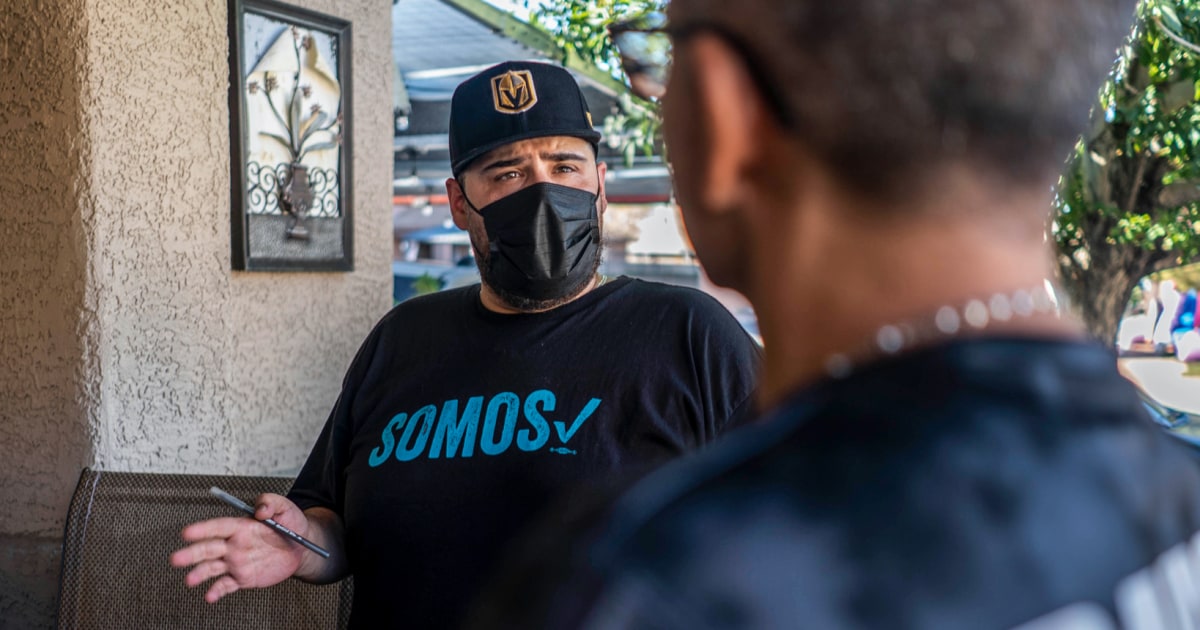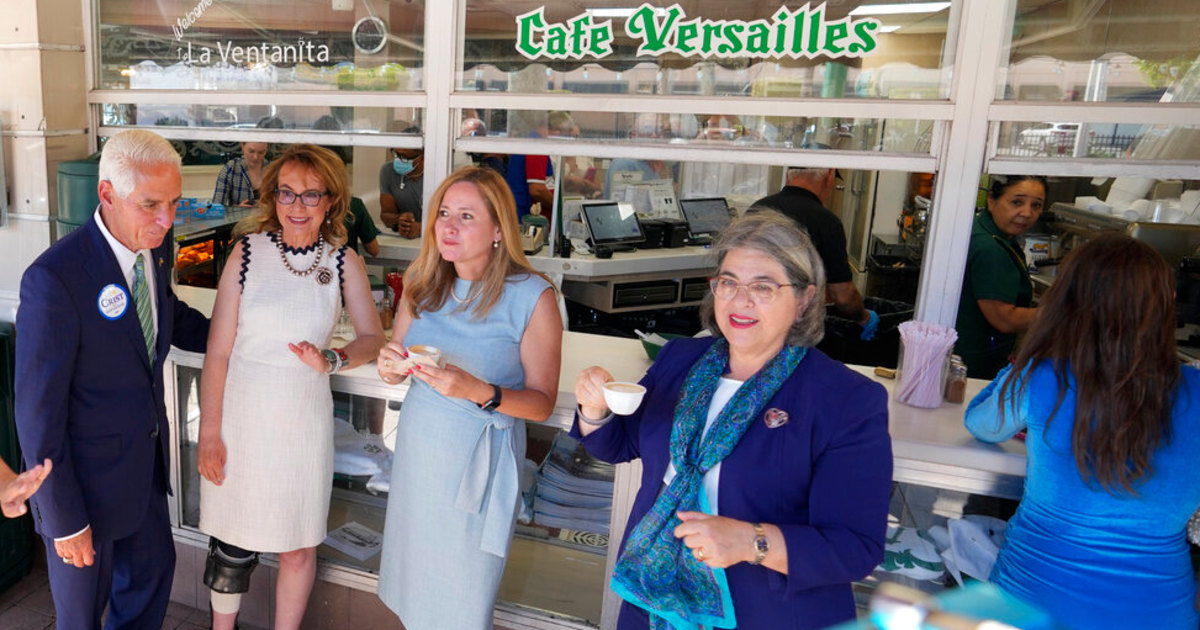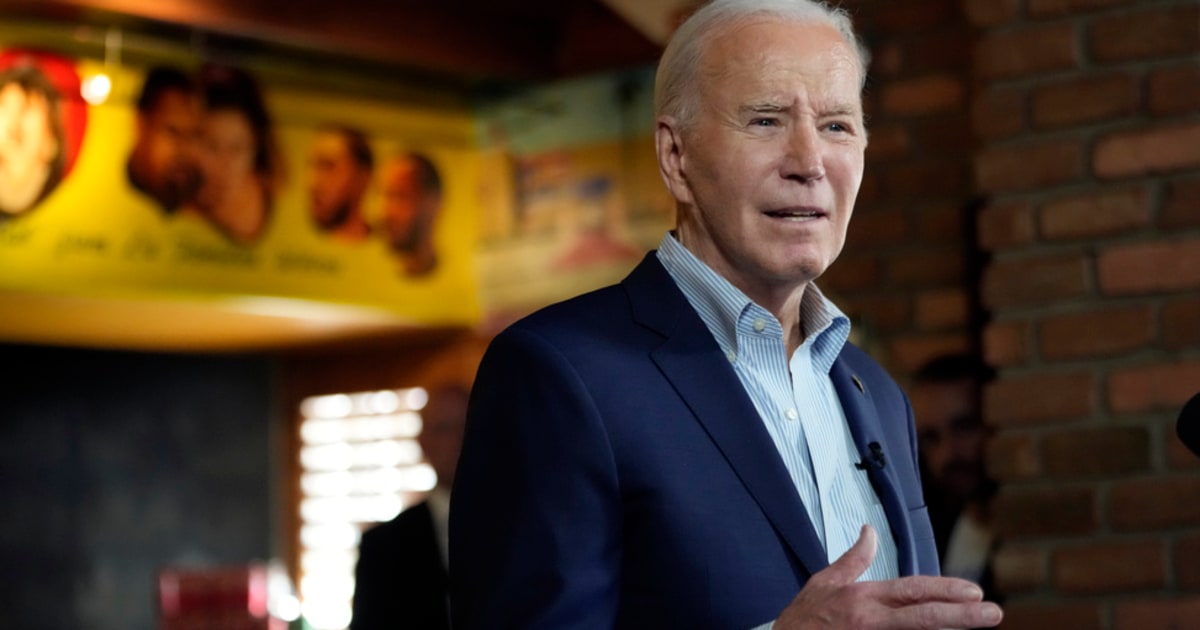Camilo has not stopped living in a “bubble of magical realism”.
Sitting on the sofa, the Colombian musician gradually leans back and sinks until one has the impression that the piece of furniture is going to engulf him.
If this meeting were a chapter of that literary genre in which the fantastic mixes with the real, perhaps the sofa would swallow it or fly away with it.
It cannot be denied that Camilo, one of the most commercially successful Latin musicians, could pass for a character out of the imagination.
Beyond his flowery earrings, his nose piercing and his numerous tattoos, the most amazing thing about his look is marked by his hairstyle raised like a torch and, especially, by his mustache, with the tips twisted upwards like Dalí.
That mustache with a pointed handlebar is his great symbol, although, shortly after chatting with him,
one realizes that his true secret lies in a look of deep warmth that accompanies his facility with words.
When Camilo looks back to remember those days as a child in which his parents took him to live from Medellín to Montería (Colombia) and he discovered music, he confesses: "He lived in a bubble of magical realism."
The same bubble that, many years later, continues to surround his existence.
Camilo is such a particular character in the reggaeton scene that it is as if he were unreal: drugs, explicit sex, street gangsterism or racial vindication do not feature in his songs.
For this reason, he has dropped the label of the good boy of reggaeton.
“When they tell me that, I smile and continue.
My effort is to remove definition.
People want to define you so they can name you, and I want to break the lines of definition."
He says.
His music, also difficult to define, appeals to its author's own universe: a friendly and colorful place.
It is noon and Camilo arrives on time for the appointment.
A few days later, he will play in Madrid as part of his summer tour, but today the first thing he wants to do is talk about his next album,
De Inside Pa Outside
(Sony), which has just been released in Spain.
The album, which brings together soft reggaeton, pop and ranchera, is the result of the musician's confinement while he waited for his daughter Indigo to be born.
“I looked inside, I waited and opened my heart with new feelings.
And then I discovered this album”, explains the singer, who is surrounded in some songs by important names such as Alejandro Sanz, Camila Cabello, Nicki Nicole, Grupo Firme and Myke Towers.
Camilo is wearing a blazer and striped trousers made of tencel and linen by Mans. Adrià Cañameras
Speak slowly and listen carefully.
He is shown as a person attentive to details, especially if they are for his family.
Just before starting the interview, he asks for a second to send a voice message to his wife, the Venezuelan actress and singer Evaluna Montaner: “My love, I love you, I love you very much and I am here.
I'm going to start an interview.
They have very
cool clothes
, which I am going to try on for the photos.
They are very cool clothes.
Kiss for you and for Indigo”.
The tone of this audio links perfectly with his songs, in which, as he himself admits, he only talks about his feelings regarding what happens to him on a daily basis: “I am in love with immortalizing in music what I am living.
If I had to write songs that don't honestly draw maps, I'd be making fiction books, but not songs.
The most interesting thing in my life is my life.”
The life of Camilo, who has conquered half the planet with his urban music varnished with commercial pop, begins in Medellín 28 years ago.
His father, Eugenio, was a beekeeper, and his mother, Lía, a kindergarten teacher.
Both decided to go live in Montería, in the Colombian Caribbean, where they were able to develop a family business.
Lía set up a bakery at home.
"My parents were very hard-working people," explains the singer.
"We paisas [as Colombians born in Medellin are called] are pushed forward."
The musician claps his hands and begins to stage a bit: “Come on, you don't have to sit still!
That's how they were.
They did everything: they set up events, they set up a restaurant after the bakery… My mother also started selling lasagna”.
And he adds: “In Mexico, there is an artist called El Fantasma who sings: 'I had shortcomings,
but I never knew which ones'.
I can apply that phrase to my childhood.
'Cause now I connect the dots and say, 'Oh right, the day we did
camping
in the room was because they cut off our electricity or water”.
The Colombian singer and composer, photographed in Madrid. Adrià Cañameras
If Gabriel García Márquez said that the magical realism of his texts came from the stories his grandmother told him, Camilo recognizes it in those of his parents.
The musician cites
One Hundred Years of Solitude
, the great novel by the Colombian Nobel Prize winner for Literature, to recall those years of hardship that passed during his childhood as if they were a very different story.
It is at that moment when, with a smile as striking as his mustache, he affirms that he lived "in a bubble of magical realism".
In a bubble… or also in a movie like
Life is beautiful:
“I don't know how that guy managed to make his son feel like he wasn't in a concentration camp all the time.
Well, my parents did the same with me.
Camilo, with shirt and pants from Acne Studios. Adrià Cañameras
Two decades ago, violence devastated Colombia, a country bled dry on many fronts: drug trafficking, guerrillas, paramilitaries, poverty... Camilo assures that, if that bubble in which he lived was real, so was the environment he inhabited.
Neither his parents nor he nor his sister were oblivious to the terror outside the house.
“Violence was not taboo, partly because it was impossible to escape from.
I used to fall asleep many nights watching the news with my parents and there you could see everything that was happening abroad”, he recalls.
In fact, he keeps memories of those years: “In Medellín you often heard shootings in the street.
Once a car bomb exploded at the end of the street and the blast wave broke the windows of my house.
Already in Montería, there was a lot of conflict between paramilitaries and guerrillas.
I had a little horse called
Confite
and was poisoned in one of those conflicts.
It was the soundtrack behind us."
Camilo's music, sweet and danceable, doesn't trace those dramas.
It focuses on his life, and his life was always marked by the family bubble and by music.
His parents, who were not musicians or had musical training, spent hours singing at home.
“My father is a great whistler.
He always told me that his mother, my grandmother, was a magnificent whistler”.
His father was also a music lover.
“He was a collector of pirate things, stolen from the radio.
We had the room full of recorded cassettes.
I grew up with them, but, of course, I never saw the faces of the artists I liked”, he explains with a smile.
The artists that caught his attention the most were kept on cassettes bearing these names: Paco de Lucía, Mercedes Sosa, Atahualpa Yupanqui, Virus, Pink Floyd, Facundo Cabral, Julio Camarillo and Alejo Durán.
“My parents knew that mine with music was not a whim.
They supported me since I was little.
The guitar was a mirror where I put the things of what I heard.
All the music at home was string music.
But I could never play anything that Paco de Lucía played!
For that you have to be born…”.
He didn't play any reggaeton or urban music either.
He came too late to the sounds that he has helped launch and that have transformed the Americas from top to bottom.
The reason?
He only listened to homemade cassettes.
“In my house the button on the radio did not work and I discovered much later what was playing in my country.
That came when he was older."
All the music at home was string music.
But I could never play anything that Paco de Lucía played!
For that you have to be born…”.
He didn't play any reggaeton or urban music either.
He came too late to the sounds that he has helped launch and that have transformed the Americas from top to bottom.
The reason?
He only listened to homemade cassettes.
“In my house the button on the radio did not work and I discovered much later what was playing in my country.
That came when he was older”.
All the music at home was string music.
But I could never play anything that Paco de Lucía played!
For that you have to be born…”.
He didn't play any reggaeton or urban music either.
He came too late to the sounds that he has helped launch and that have transformed the Americas from top to bottom.
The reason?
He only listened to homemade cassettes.
“In my house the button on the radio did not work and I discovered much later what was playing in my country.
That came when he was older”.
The reason?
She only listened to homemade cassettes.
“In my house the button on the radio did not work and I discovered much later what was playing in my country.
That came when he was older."
The reason?
She only listened to homemade cassettes.
“In my house the button on the radio did not work and I discovered much later what was playing in my country.
That came when he was older."
Camilo wears pants and jacket by Mans. Adrià Cañameras
At the age of 13, he tried his luck on the television contest
Factor X
and he won it.
The prize consisted of recording her first songs.
“I had zero ambition.
I showed up for fun,” she assures.
It was the beginning of a career that took a long time to take off.
She recorded some loose things while doing her first steps on Colombian television.
Everything changed when he went to Miami to be with his current wife, Evaluna Montaner, daughter of the famous Venezuelan singer-songwriter Ricardo Montaner.
“She went to live with her father in Miami shortly after they started dating.
He had no money to visit her.
Her father knew that he had no money.
He called me and told me that she needed to record some guitars for an album.
He knew that I played the guitar.
It was a lie.
He did it to see to what extent he was in love with Evaluna.
So he gave me the exact money for what it cost to go see Evaluna in Miami for her birthday.
I appeared there.
I was under the delusion that he was paying for my travels when, in reality, my current father-in-law was a sponsor of our love.
Nowadays, my father-in-law maintains that he needed to record those guitars, but he lies”, he says with a laugh.
In 2015, he moved to Miami and furthered his career by writing songs for Becky G, Natti Natasha, Anitta, and Bad Bunny.
“I had a great creative unlock.
I began to write with more freedom, without so much surgical fear.
I also started to find my sound without trying to find it”.
The Camilo that everyone now knows was born, the one with the Dalí-style mustache, a musician who shattered the figures with his first two albums,
For the First Time
and
My Hands,
flooded with a nice reggaeton that "elevated the everyday to greatness".
“In the artistic profession, I believe that the relationship between the artist and the audience is like a mirror.
When you share something honestly, the answer is honestly”, reflects a composer who is not afraid to sing about home, family life and his daughter, to whom he dedicates a song on his new album.
“I never planned to be the way I am thinking about differentiating myself from others.
Something that I celebrate a lot is that in Latin music there is room for diversity and honesty.
There is everything and not everything is for everyone.
For likes there are the colors.
My form does not seek to oppose anything.
There are many things about reggaeton that criticize that I enjoy it, what happens is that it doesn't work out for me to do it that way, naturally."
And he leaves a note about it with Latin music:
“Latinos are making it clear that we are not a minority or three cats.
On digital platforms we see that metrics give us importance.
We are many valuable people.”
Camilo, with a Mans vest and Hermès pants. Adrià Cañameras
Camilo wears a pendant around his neck with a photograph of Evaluna from when she was a child.
There is no interview in which he does not take the opportunity to show off her, which he describes as "fascinating" and "unique".
Their relationship is one of the best known in Latin music and generates news of all kinds.
Both are famous musicians, they like to appear in video clips and share their lives on social networks without shame, such as when they show images of Evaluna's home birth.
However, according to him, there are insurmountable corners for the public: “There are corners of that intimacy where no one enters.
What we have exposed is in an honest and simple way, not thirsty for visualizations.
For this reason, I think there is affection from the people, who are almost familiarly connected to us.”
That connection is the greatest secret of this musician,
who meditates and recognizes himself as a very spiritual person, "a guy awake to the depth of reality."
“It would be very suspicious if this world was just a chemical game of particles and that's it.
God is named out of our need, but not because he has that name.
It doesn't fit in one word.
He is the source of all creativity,” he notes.
Camilo, with an Acne Studios shirt. Adrià Cañameras
Camilo always shows himself as he is: someone cordial and different, as if he came out of a comic from another time, or from that bubble of magical realism to which he referred about his own existence.
More than 30 tattoos populate his body.
The last one that has been done has been the drawing of some sandals.
“I really like that image in the Bible where Moses takes off his sandals because he is stepping on holy ground.
He becomes aware,” he says.
"The tattoo helps me a lot to remember how sacred everything is, every moment."
And, with his peculiar mustache holding each word, he confesses the most sacred part of his life: “What I've always been most excited about is going on tour.
But now there is one thing that makes me more excited: going on tour with my wife and my daughter”.
Subscribe to continue reading
read without limits
Keep reading
I'm already a subscriber















